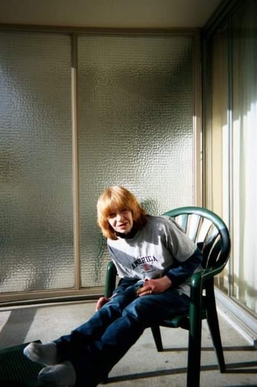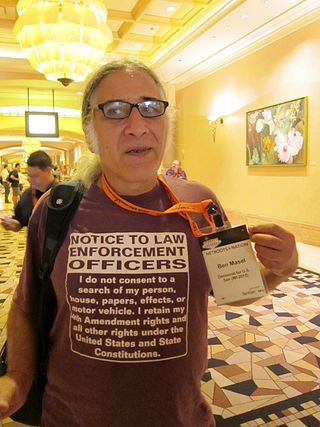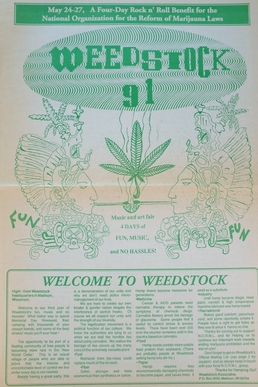
420, 4:20 or 4/20 is cannabis culture slang for marijuana and hashish consumption, especially smoking around the time 4:20 pm (16:20). It also refers to cannabis-oriented celebrations that take place annually on April 20.
The National Organization for the Reform of Marijuana Laws is a social welfare organization based in Washington, D.C., that advocates for the reform of marijuana laws in the United States regarding both medical and non-medical use. According to their website, NORML supports "the removal of all penalties for the private possession and responsible use of marijuana by adults, including cultivation for personal use, and casual nonprofit transfers of small amounts" and advocates for "the creation of a legal and regulatory framework for marijuana's production and retail sale to adults". NORML also has a sister organization, NORML Foundation, that focuses on educational efforts and providing legal assistance and support to people affected negatively by current marijuana laws. NORML maintains chapters in a number of US states as well as outside the US in countries such as Canada, France, New Zealand, and South Africa.

In the United States, the removal of cannabis from Schedule I of the Controlled Substances Act is a proposed legal and administrative change in cannabis-related law at the federal level. It has been proposed repeatedly since 1972. The category is the most tightly restricted category reserved for drugs that have "no currently accepted medical use."

Irvin Dana Beal is an American social and political activist, best known for his efforts to legalize marijuana and to promote the benefits of Ibogaine as an addiction treatment. He is a founder and long-term activist in the Youth International Party (Yippies), and founded the Yipster Times newspaper in 1972. The Yipster Times was renamed Overthrow in 1978, and ended publication in 1989.

The Global Marijuana March (GMM), also referred to as the Million Marijuana March (MMM), is an annual rally held at different locations around the world on the first Saturday in May. A notable event in cannabis culture, it is associated with cannabis-themed events, which may include marches, meetings, rallies, raves, concerts, festivals, and attempts at educational outreach.

Cannabis culture describes a social atmosphere or series of associated social behaviors that depends heavily upon cannabis consumption, particularly as an entheogen, recreational drug and medicine.

The legal history of cannabis in the United States began with state-level prohibition in the early 20th century, with the first major federal limitations occurring in 1937. Starting with Oregon in 1973, individual states began to liberalize cannabis laws through decriminalization. In 1996, California became the first state to legalize medical cannabis, sparking a trend that spread to a majority of states by 2016. In 2012, Washington and Colorado became the first states to legalize cannabis for recreational use.

Cannabis in Wisconsin is illegal for recreational use. Possession of any amount is punishable by up to 6 months in prison and a $1000 fine for a first offense. A second offense is punished as a felony with up to 3.5 years in prison and up to a $10,000 fine. At the local level, however, numerous municipalities and counties have decriminalized cannabis or lessened penalties for minor possession offenses. Medical use is legal only in the form of low-THC cannabis oil.

Cannabis in Washington relates to a number of legislative, legal, and cultural events surrounding the use of cannabis. On December 6, 2012, Washington became the first U.S. state to legalize recreational use of marijuana and the first to allow recreational marijuana sales, alongside Colorado. The state had previously legalized medical marijuana in 1998. Under state law, cannabis is legal for medical purposes and for any purpose by adults over 21.
Cannabis in Georgia is legal in terms of its possession and consumption due to a ruling by the Constitutional Court of Georgia on 30 July 2018. This makes Georgia one of the first countries in the world to legalize cannabis for both recreational and medical use, and the only former-communist state in the world to do so.

Jacki Rickert was founder and executive director of the medical marijuana patients advocacy group Is My Medicine Legal Yet? (IMMLY). Rickert lived with connective tissue disorder Ehlers-Danlos syndrome and a neurological disorder that causes chronic pain called Advanced Reflex Sympathetic Dystrophy. Rickert was one of twenty-eight patients who were approved in 1990 to begin getting marijuana from the federal Compassionate Investigational New Drug Program before President George Bush ended the program, in 1991, but never got their medicine. Rickert travelled in her wheelchair 210 miles (340 km) from her home in Mondovi, Wisconsin, to the State Capitol in Madison on September 11–18, 1997, to raise awareness of her plight.

Bennett A. “Ben” Masel was an American writer, publisher, cannabis rights and free speech activist, expert witness for marijuana defendants, and frequent candidate for public office. A skilled chess player, Masel was director of Wisconsin NORML, and organizer of Weedstock and the annual Great Midwest Marijuana Harvest Festival which has been held in front of the Wisconsin State Capitol every autumn since 1971.

Terms related to cannabis include:

Thomas Christopher Wright is an American businessman, cannabis rights and free speech activist, and frequent candidate for public office. Wright, who co-founded the Grassroots Party in 1986, owns a computer repair shop in Bloomington, Minnesota.
La Fete de Marquette is an annual summer festival in Madison, Wisconsin.

Weedstock was a cannabis rights music festival in the United States, originally held annually near Madison, Wisconsin from 1988 to 2001.

The Cannabis Action Network (CAN) is a former U.S. nonprofit cannabis policy reform organization, active between 1989 and 2008. The organization strove to "encourage sensible cannabis use" and advocated for "safe access for responsible adults and patients" through the "challenge the laws of the United States and the individual states prohibiting the possession and distribution of marijuana".















